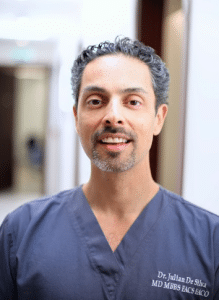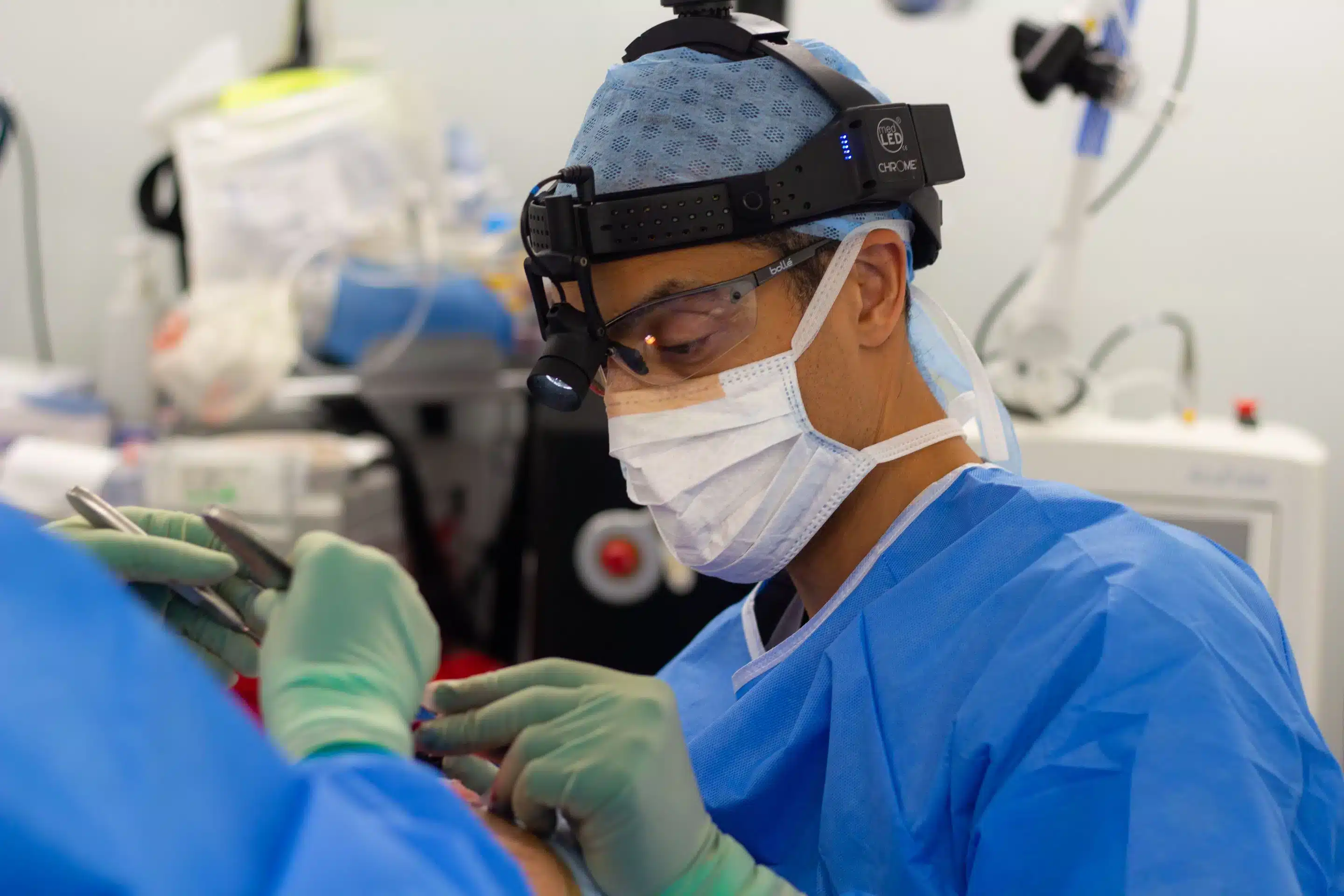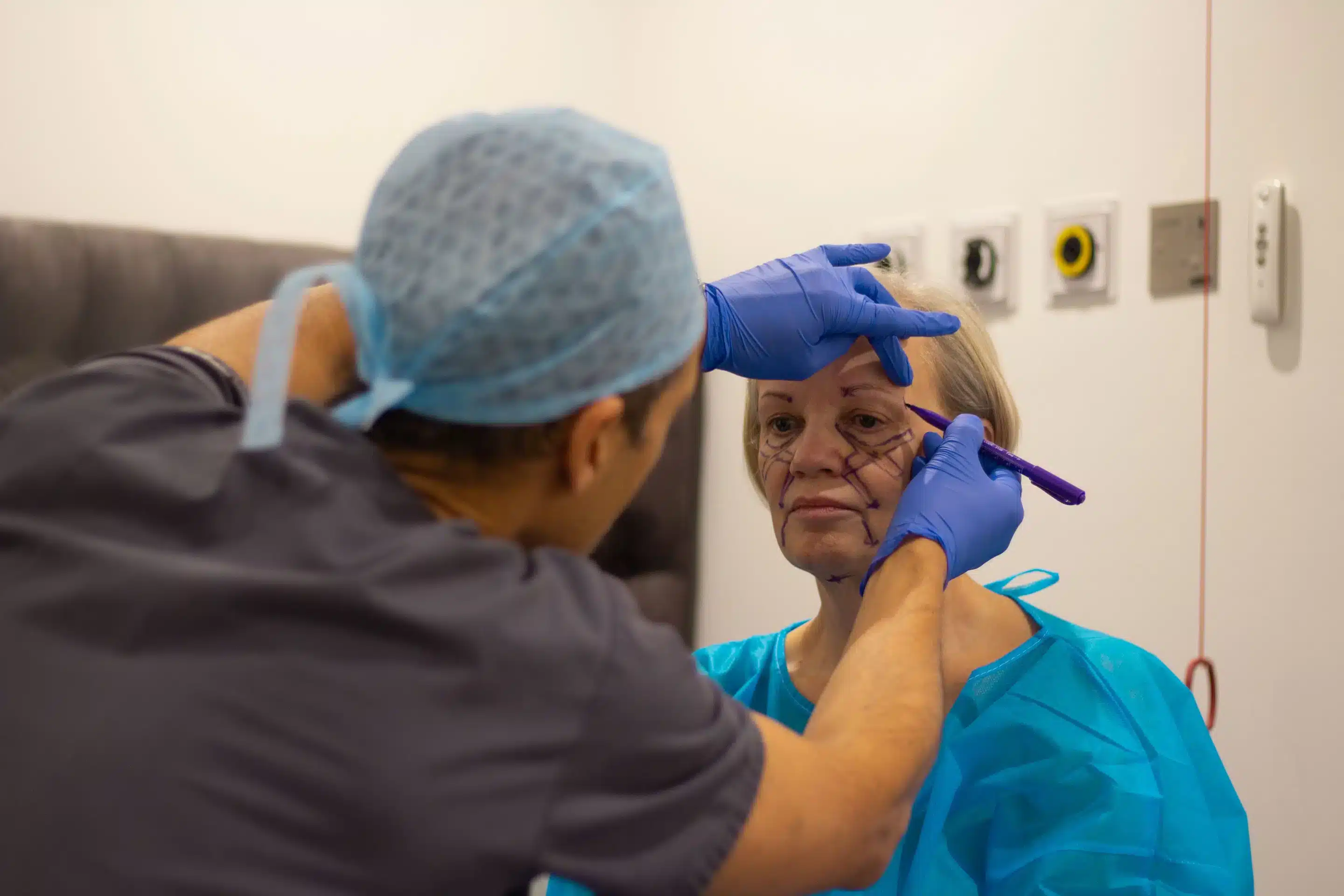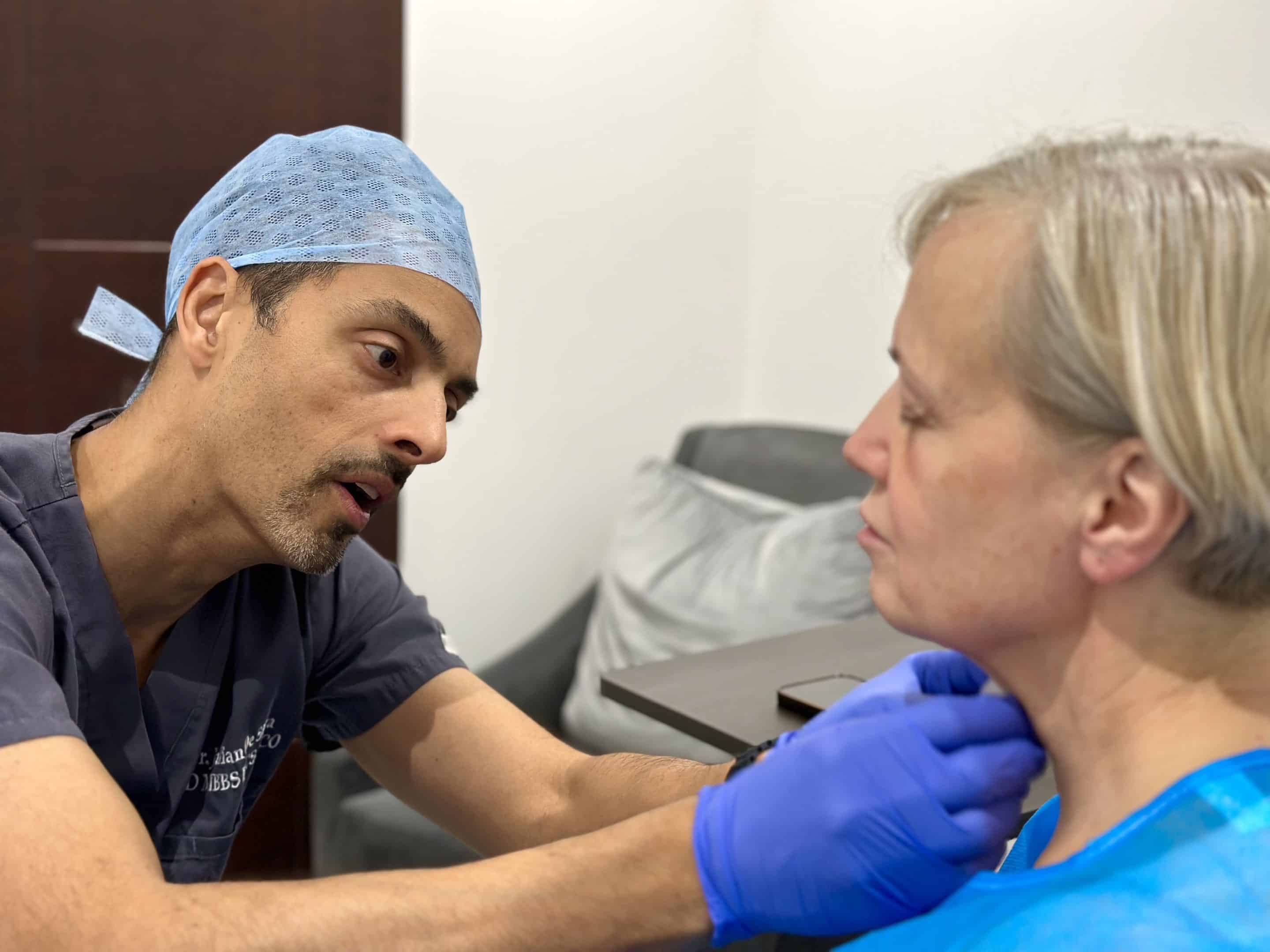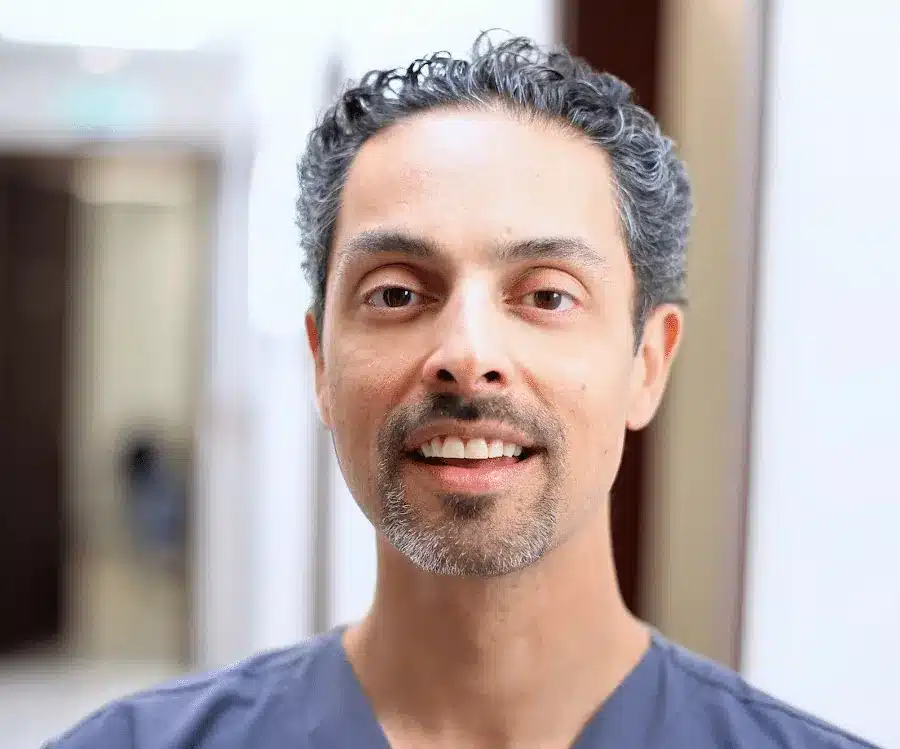According to the American Society of Plastic Surgeons, approximately 78,500 facelifts are performed annually in the U.S. alone, and ensuring a smooth and speedy recovery can make all the difference.
Undergoing facelift surgery is a significant decision that often brings anticipation and curiosity about the recovery process.
We do know recovery is never easy, but it doesn’t have to be daunting either. With the right tips and guidance can make your road to healing so much easier and less stressful after your facelift surgery in London. So let’s get into some practical tips that will have you back to feeling like yourself in no time.
Whether you are curious about the facelift before-and-after experience or seeking advice on cosmetic facial surgery, the journey to recovery can be manageable if handled with care.
Understanding the Recovery Timeline
The healing process after facelift surgery varies from person to person. However, there are some key stages that most patients in London can expect. Immediately after the procedure, your face will likely feel swollen and bruised. This is entirely normal.
In fact, swelling can last several weeks, although it will gradually reduce as the days go by. You may also experience some tightness in your skin, which is a sign of your body adjusting to its new contours.
The week immediately following your facelift surgery in London is your rest period. This doesn’t mean that you have to be in bed all day, it’s just the time when overexertion can lead to setbacks. By the end of week two, most patients receive clearance to resume light activities. If you’re wondering about facelift surgery cost, consider the fact that recovery time off work is part of the upfront investment you make in your long-lasting results.
Post-Surgery Care for Optimal Results
Post facelift surgery in London taking care of your body after cosmetic facial surgery ensures the best possible outcome. We always advise sticking closely to the post-surgical instructions given by your surgeon. This includes keeping the incision sites clean, monitoring for any signs of infection, and applying ice packs to reduce swelling. It’s essential to avoid smoking and alcohol, as both can slow down the healing process.
Compression garments can be an unsung hero in the recovery process. They help reduce swelling and support the new contours of your face. If you’ve ever looked at facelift before and after photos, you’ll notice the dramatic difference in healing when these garments are worn as instructed. In addition, sleeping with your head elevated will help reduce swelling and improve circulation, making you feel more comfortable during the initial days of recovery.
Manageing Swelling and Bruising
One of the most common concerns We’ve come across after facelift surgery in London is how to handle the inevitable swelling and bruising. While it’s true that bruising is part of the healing process, there are ways to minimize it. Applying cold compresses for short periods during the first 48 hours post-surgery can reduce inflammation. Just make sure you wrap the compress in a cloth before applying it to your skin to prevent any frostbite.
It’s also wise to keep your diet full of anti-inflammatory foods, such as leafy greens, nuts, and berries. These foods promote healthy blood flow, which helps reduce bruising and inflammation. Maintaining hydration plays a big role in healing too, so make sure you’re drinking plenty of water.
Gentle Exercise and Movement
We always recommend light movement during the recovery phase. Simple activities like short walks can significantly improve circulation, aiding in the healing process. Be cautious though—any strenuous activities should be avoided for at least a few weeks to prevent overexertion and to keep your incision sites from stretching.
By the third or fourth week after your facelift surgery in London, you’ll likely be ready to introduce more moderate physical activity, but it’s important to listen to your body. If you’re unsure about whether or not it’s safe to start a certain activity, consult with your surgeon. After all, when it comes to facelift surgery in London experts always emphasize the importance of patience during recovery.
Eating Right for Faster Healing
What you eat after surgery can play a huge role in how quickly your body bounces back. High-protein foods like fish, eggs, and lean meats provide the necessary building blocks for tissue repair. Incorporating plenty of vitamins and antioxidants through fruits and vegetables is another great way to boost your immune system and support the healing process. Foods rich in Vitamin C, like oranges and strawberries, are particularly beneficial for skin health and collagen production.
Constipation can be an unexpected hurdle during recovery, often caused by anesthesia and pain medications. To counter this, include fiber-rich foods like oats and legumes in your diet. These will help keep your digestive system moving smoothly and reduce discomfort.
Resting Your Body and Mind
One of the most overlooked aspects of recovery is mental health. Facelift surgery in London can be emotionally taxing. We always encourage patients to rest not just their bodies, but their minds. Take this time to indulge in activities that relax you, whether it’s reading, listening to music, or meditating.
It’s also important to be patient with yourself. Healing isn’t an overnight process, and setbacks, though rare, can happen. If you’re feeling overwhelmed, don’t hesitate to reach out to your surgeon for advice or reassurance.
When to Seek Medical Advice
While recovery generally goes smoothly for most, certain signs shouldn’t be ignored. If you experience excessive swelling, or sudden sharp pains, or notice unusual discharge from your incision sites, it’s vital to consult with your surgeon immediately. Post-surgical complications can happen, and it’s better to address any issues sooner rather than later to avoid prolonging your recovery.
After facelift surgery in London, keeping in touch with your surgeon and following their advice, you can navigate any challenges during your recovery.
Conclusion
The key to a smooth recovery after facelift surgery in London is a combination of rest, proper nutrition, and adherence to post-operative care instructions. Every individual’s healing journey will look slightly different, but with these guidelines, you’ll be well on your way to achieving your desired results.
Whether you’re researching facelift surgery or curious about facelift before and after experiences, remember that your health and comfort during the recovery process are just as important as the surgery itself.
Facelift surgery offers a renewed sense of confidence and youthfulness, and the recovery process is simply the bridge to that destination. Take care of your body, listen to your surgeon, and enjoy the results that will come with time and care.
FAQs: Recovery After Facelift Surgery
1. How long does it take to fully recover from facelift surgery?
Recovery from facelift surgery varies by individual, but most people begin feeling better after two weeks. The initial swelling and bruising will start to subside during this period. Full recovery, where the final results are visible, can take several months. It’s essential to follow your surgeon’s post-op instructions to ensure a smooth healing process. The final results of any scar can be as long as 12-18 months.
2. What can I do to reduce swelling after facelift surgery in London?
To minimize swelling after facelift surgery, applying cold compresses during the first 3-days is effective in reducing swelling. This is why athletes such as tennis professionals go into an ice bath after a long 5-set match. Sleeping with your head elevated and wearing compression garments as advised by your surgeon can also help. Including anti-inflammatory medicine can further aid the recovery process. Other techniques such as MLD (Manual Lymphatic Drainage) can be helpful, as it can aid swelling drainage, Dr De Silva has one of his team complete this in his office for patients to aid their recovery. How much does facelift surgery cost in London?
The facelift surgery cost in London varies depending on the surgeon’s expertise, clinic location, and the extent of the procedure. On average, it can range from £10,000 to £25,000 upwards. Be sure to discuss all fees, including aftercare costs, during your consultation.
3. When will I see the final results of my facelift before and after?
The initial results of facelift surgery can be seen in the neck area even the morning after the surgery, Most of the swelling usually resolves within two to three weeks. However, the full transformation will be visible after several months, once your skin fully settles into its new contours. Looking at facelift before and after photos can give you a realistic expectation of the healing timeline. Dr De Silva utilizes other specialist methods to aid reduction in swelling including an overnight machine that cools the soft tissues and hyperbaric oxygen to enhance healing.

